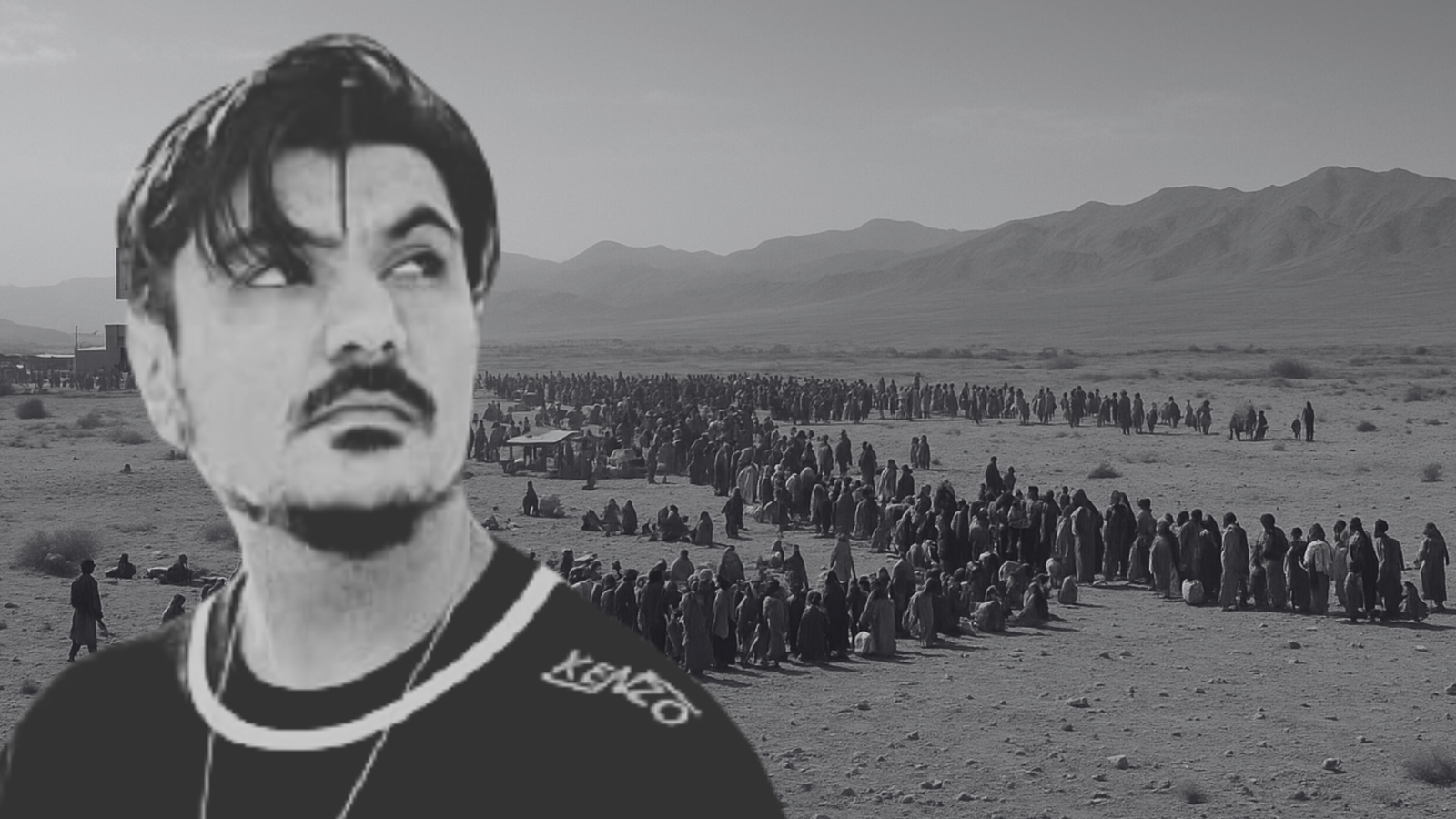“They beat a paralysed man outside a pharmacy.” That chilling recollection from a refugee recently deported from Iran was among the testimonies shared by journalist Ali Latifi during his recent appearance on the Afghan Eye podcast, hosted by Sangar Paykhar. Latifi, who has spent over 15 years documenting Afghan displacement, recently visited the Islam Qala crossing, Afghanistan’s western border with Iran. What he found there was not simply a logistical failure or administrative oversight, but the deep trauma of a population tossed around by geopolitics, racism, and bureaucratic apathy.
In recent months, Iran has intensified its expulsion of Afghans, mirroring Pakistan’s own campaign of mass deportations. Both governments claim the deportees are undocumented, a narrative often used to cloak xenophobic crackdowns that flourish amid internal crises. In Iran, this renewed hostility has followed fabricated accusations that Afghans were spying for Israel amid the 12 day Israel-Iran war—a claim Ali Latifi called ‘utterly absurd’ given the historic lack of ties between Kabul and Tel Aviv.
What results is a system in which refugees are scapegoated, beaten, and robbed by Iranian police and ordinary citizens alike. Latifi noted, ‘Even before deporting them, the priority is to take as much money from them as possible.’
Brutality in Transit, Emptiness at Home
The physical abuse is not limited to beatings. Refugees have recounted being chased by mobs wielding sticks, and even swords, in the dead of night. Some were plucked from the streets while queuing at pharmacies. ‘It was not just state-led oppression,’ Latifi stressed, ‘but communal violence, egged on by social media, nationalism, and old-fashioned bigotry.’
But if the expulsion is traumatic, what awaits returnees in Afghanistan is not relief—only more disorientation. While some return to provinces they fled decades ago, many have no homes, families, or assets left. Others never had any to begin with. Many arrive with nothing but the clothes on their backs.
‘The vast majority say: ‘We have nothing in Afghanistan’,’ Latifi explained. The border reception facilities at Islam Qala and the more orderly Torkham crossing in the east were never designed for the tens of thousands arriving weekly. While the newly constructed Omari Camp offers some shelter, its temporary nature belies the reality that there is no long-term plan for reintegration.
Broken Aid and the Struggle for Dignity
In the face of overwhelming need, the performance of international humanitarian organisations has been disappointing. ‘They still don’t understand what people need and how to deliver it,’ said Latifi, expressing particular frustration with the International Organization for Migration (IOM), which offers just 2,000 Afghanis (about $25) per returnee—a token sum insufficient to cover food, transport, or accommodation.
The chaos is not without irony. Despite being overstretched and under sanctions, local actors and private citizens often fill gaps left by the international community. Celebrities like cricket star Mohammad Nabi and influencers such as Khyber Khaan have raised hundreds of thousands of dollars through private campaigns. ‘It gives me hope,’ Latifi said, ‘that ordinary Afghans still care more than the people paid to do this work.’
A Crisis Manufactured by Policy
The crisis is not simply a humanitarian one. It is political. Paykhar and Latifi agree that sanctions, banking restrictions, and asset seizures have gutted Afghanistan’s economic potential, leading to the outflow of labourers and professionals alike. ‘If the world wants fewer Afghan refugees, it must stop creating the conditions that produce them,’ Paykhar observed.
Moreover, the inconsistency of the West has been glaring. After 2021, European governments made lofty promises to host Afghan evacuees. But as the media spotlight faded, so did their commitment. Latifi noted that EU officials now openly discuss plans to deport Afghans. ‘You want to deport people,’ he said, ‘but you won’t fund any programme that would give them a job if they go back. That’s not policy—that’s abdication.’
Stateless and Voiceless
In a world increasingly gripped by xenophobic nationalism, Afghans have become global scapegoats. From Iran to Turkey, from the United States to the Netherlands, the refugee has become a political piñata. Right-wing influencers in the West have even cited Pakistan’s deportations as a model for their own immigration crackdowns.
Latifi warned of the psychological toll this has taken on Afghan communities. Many fear that their children’s futures are being extinguished by structural indifference. Schools in Iran refused to enrol Afghan children. Banks rejected them. Entire parks and neighbourhoods were declared off-limits. And when they return, they are met with suspicion and silence.
Afghanistan Needs Its Diaspora—And Its Dignity
Despite the bleakness, Latifi remains convinced that a solution is possible—but only if Afghans themselves lead the conversation. Both he and Paykhar argue that the diaspora has a critical role to play, not merely as remittance-senders, but as a political force capable of advocating for humane policies.
‘We lack a unified voice,’ Paykhar lamented. ‘We need to collectively say that economic sabotage of Afghanistan hurts everyone—our neighbours, Europe, and us.’
In the absence of state capacity and international aid, it is civil society and Afghan solidarity that must step in. The alternative is a generation consigned to borderlands, living in limbo, punished for their place of birth.
